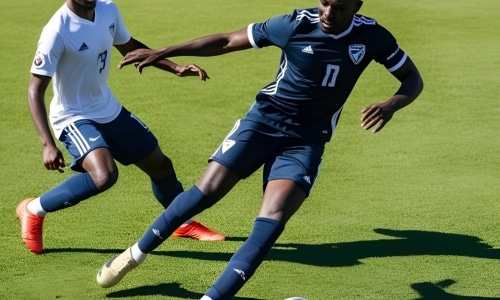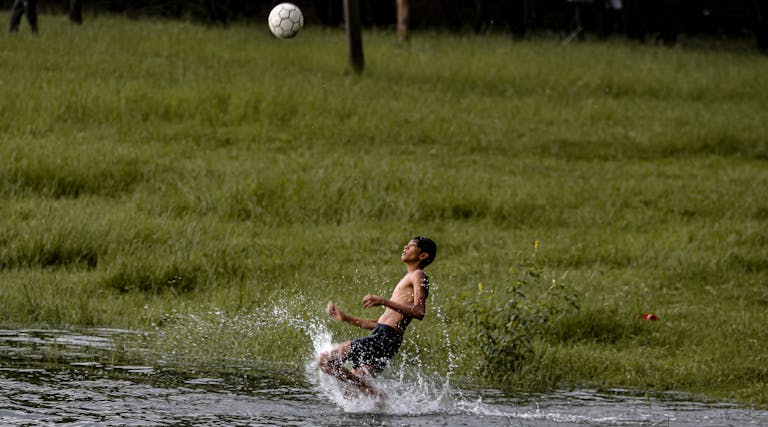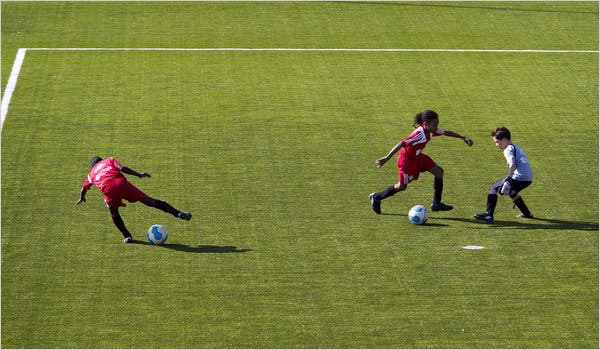As I grow older, one thing becomes clear every Friday when I step onto the pitch with my school friends—age is just a number, but staying competitive requires effort, adaptation, and a bit of humility. We aren’t teenagers anymore. Our knees crack, our recovery takes longer, and our sprints are a little slower. But the love for football hasn’t aged one bit.
This is a personal journey. A journey of learning how to play smarter, take care of my body, and continue to contribute meaningfully to every game, despite the passage of time. If you’re someone who loves sports and wonders how to keep going as the years go by, I hope my story inspires you.
Read also: THE JOY OF SCORING A GOAL AFTER A LONG WEEK OF WORK
Realizing That the Game Changes
When we were younger, we could play back-to-back matches, run non-stop, and hardly feel tired. Now, I feel every minute of the match the next day. The body reminds you that it’s not 20 anymore.
At first, this was frustrating. I wanted to play the way I used to—fast runs, quick cuts, aggressive defending. But gradually, I understood that the key to staying competitive wasn’t trying to play like I did at 18. It was learning how to play better with what I have now.
Smarter Movement, Not Harder
I began focusing more on positioning, anticipation, and quick passing rather than chasing every ball. Instead of long dribbles or flashy footwork, I rely on quick touches, clean passes, and making space. My combination with Ansar is a great example. We may not be the fastest anymore, but our understanding of each other’s movement keeps us effective.
Good communication, clever runs, and knowing when not to run have replaced the need for speed.
Focusing on Fitness and Stamina
To keep up with the younger players and maintain my level of play, I had to make some lifestyle changes.
1. Walking regularly: I started going on long walks at least five times a week. Walking helped build my stamina without stressing my knees or joints too much.
2. Eating better: I cut down on fried food, reduced sugar, and focused more on protein, vegetables, and hydration. Proper nutrition gave me more energy for game days.
3. Knee support and gear: I use kneecaps and occasionally knee pads, especially when we play on turf. These simple supports make a huge difference in both performance and post-match recovery.
4. Stretching and warm-up: Gone are the days of jumping straight into the game. Now, I do at least 10-15 minutes of warm-up stretches before we start. It prevents injury and helps me stay agile.
5. Rest and sleep: Recovery is more important now than ever. I make sure to sleep well before match day and take a short nap after the game if possible.
Leading by Example
One of the most beautiful things about playing with old friends is the shared growth. We’ve all changed, but the bond remains. And when younger players join, I try to lead by example.
I encourage passing over dribbling, teamwork over solo glory. I cheer for others’ goals, I celebrate assists. I want to show that contribution comes in many forms.
Sometimes our kids come to watch or even play. It fills me with pride when they see us, not as tired old men clinging to our youth, but as passionate players showing them that age doesn’t mean giving up. It means playing with wisdom.
Laughs, Jokes, and Brotherhood
We argue sometimes on the field. We joke, tease, and call each other out for missed passes. But after the game, we sit together, talk, drink tea, and share laughs like we always did. These post-game sessions are part of the experience. They heal the body and refresh the mind.
The competitiveness never goes away. We still want to win. But we’ve learned to laugh at mistakes, support each other, and enjoy the game for what it is.
Moments That Keep Me Going
There are matches when everything just clicks. I remember one Friday when I scored after a perfect build-up with three quick passes. The celebration, the cheers, the satisfaction of teamwork—those are moments that recharge me.
And even on days when I don’t score, a well-timed assist, a clever pass, or even just good defending brings its own joy. I’ve shifted from measuring my performance in goals to measuring it in contribution.
Adapting, Not Quitting
Getting older doesn’t mean you stop being competitive. It means you adapt.
I used to chase every ball. Now I position myself to intercept. I used to take long shots. Now I look for better passing options. I used to try and run the game. Now I try to read the game.
That shift in mindset has not only kept me competitive but has made me a better player in many ways.
Encouraging Others
Whenever someone my age tells me they stopped playing because they “got old,” I encourage them to reconsider. You don’t need to keep up with the 20-year-olds. You just need to keep up with yourself.
Play smart. Play regularly. Support your body with good habits. And most importantly, play for the joy of it.
Final Thoughts
Every Friday, when I lace up my turf shoes and step onto the field, I feel something that no age can take away: passion.
Staying competitive as I age isn’t about being the best on the field. It’s about showing up, giving my best, and doing it alongside the people who mean the most to me. It’s about the laughs, the passes, the subtle nods, the goals, and the lessons.
Football has taught me that aging isn’t about slowing down. It’s about learning to move differently, think differently, and love the game in a new way.
And as long as I can pass, run, and smile on the field, I’ll keep playing.
Because the game doesn’t get old. We just learn to play it wiser.






